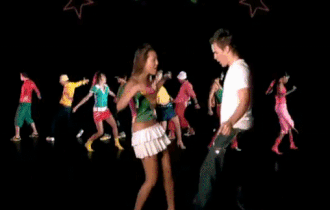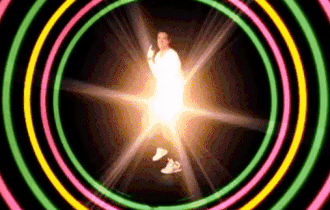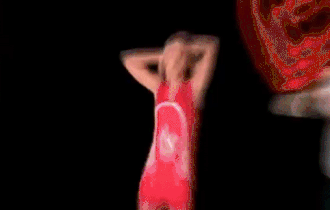Released: 30th August 2004
Writers: Mark Topham / Karl Twigg
Peak position: #26
Chart run: 26-44-68
In the annals of music history, the mid-‘00s will most certainly not be the moment associated with a bubblegum pop revival. But tucked away, amidst a sea of rock, R&B, rap and indie that was washing over the charts, Pop! were still trying to keep the sound of yesteryear alive with Can’t Say Goodbye.

In some respects, the fact that the group got a second single at all was a blessing. Their debut Heaven and Earth had stalled at #14, and although that in itself wasn’t a reason to throw in the towel, this was an unforgiving time. Nearly every route into the charts that would have existed for Pop! five years earlier was shut down, or imminently to do so. Radio airplay was out of the question, TV promotional spots were drying up, and single sales were sinking to such levels that it was increasingly hard to turn a profit on them. All-in-all, it was a pretty miserable time to be a fledgeling pop act that was engineered around the lucrative model of the past.

Not that you’d have known it from Can’t Say Goodbye; this was another attempt to turn back to the clock in every possible sense. The track was penned by Mark Topham and Karl Twigg and produced by Pete Waterman. The trio had been responsible for some of Steps’ biggest hits; there was absolutely no pretence here that this was anything other than an attempt to recapture that magic. And wouldn’t you just know it, Can’t Say Goodbye lands perilously close to the mark.

It’s actually doing a disservice to the song to suggest it’s merely treading over old ground. For the uninitiated (or perhaps disinterested), there are definite similarities; structurally the track opts for a familiar slow-build (by this point an entirely unconvincing pretence) before revealing itself as a thundering uptempo. But itdoes represent an evolution of sorts; there’s a stronger emphasis on Can’t Say Goodbye as a pop-dance number, and it’s not unimaginable that Steps would have headed in this direction. Indeed, it could almost have been recorded by an act like Angel City and sold down the commercial dance route.

A similar progression is seen in the lyrics; Can’t Say Goodbye might well be dealing with the standard trope of disco-heartbreak, but here the burden is firmly shared: “You and I never learn from our mistakes, maybe that’s why I always stay to face another day (another day); even now when we’re staring at the truth, once I see the hurt in you, I know I’ll try again”. The shift in focus, coupled with some beautifully melancholic production and haunting backing vocals during the verses creates a palpable, aching sadness to the song. It’s surprisingly moving, and perhaps the only regret is that Can’t Say Goodbye wasn’t even more indulgent in its moroseness. The frantic beat is perfectly functional, but it occasionally masks some of the subtler elements.

Despite Pop!’s first two singles being sonically quite similar, what pushes this one just ahead of Heaven and Earth – for our money – is the chorus. It’s bursting with urgency as if the group (well, Jade, as the only audible member) are singing for their lives: “Right before I walk out of the door, something keeps me coming back for more, and I DO-O-O-ON’T know why I can’t say goodbye”. The track never stops upping the ante, though. Following a cataclysmic key-change (what else!), Can’t Say Goodbye cuts in on itself and drops a deconstructed chorus/coda: “Can’t say goodbye, no I just don’t know why, every time that I try, I just break down a cry, tell me WH-H-H-H-HY, is it I J-U-U-U-U-ST can’t say, I can’t say GOOD-BY-Y-Y-Y-Y-Y-E”. What it creates – besides a finale delivered with fist-pumping triumph and soaring vocals – is a sense of completeness. The song feels as if it’s conveyed a journey, rather than a series of inconsequential lyrics. It hasn’t; but when digested in its entirety, it certainly comes across that way. The pay-off for the three minutes Can’t Say Goodbye takes to reach its apex is so worth it.

Visually, this single is a classic example of a mid-‘00s music video that works much better now than it did at the time. In the immediate aftermath of the bubblegum pop phenomenon, which grew ever more extravagant until its subsequent implosion, the aesthetic here felt comparatively modest. And it is; but in hindsight, the vibrant, neon-infused sequences – which play out as if Pop! are performing from inside a slot machine – are incredibly effective. Every few seconds there’s a transition that flashes, flips or spins the visuals, which turns what would otherwise be a bog-standard piece of choreography into something that is eye-poppingly dynamic. It was genuinely a surprise to revisit Can’t Say Goodbye and find a video that – aided by a higher-quality resolution – is really neatly put together; everything flows thoughtfully, the styling is excellent, and the group look so good together. If anything, it merely reinforces the fact that Pop! were battling a mid-decade perception that pop music of this ilk must – by default – be utterly naff. The truth, as it turns out, was quite the opposite and by any standard, this is a solid effort.

Can’t Say Goodbye debuted and peaked in the UK at #26, which was, quite frankly, a disaster for a track of this quality. It wasn’t remotely surprising though; one need only look at the chart the week the single was released to see why Pop! ended up where they did, and why the odds were so stacked against them. There was just no significant market for pop music like this anymore, and the song stuck out like a sore thumb. Pete Waterman was sticking (some would say stubbornly so) to the template he had established a decade earlier. His refusal to bow to chart trends might have seemed misguided, and it probably did contribute to the undoing of this single. But that does mean that in retrospect – now free from the stigma of being so markedly out of step with the songs around it – Can’t Say Goodbye stands as a glimmering slice of pop brilliance.

Pop! weren’t done yet though; a third – and final – single would follow. No-one was blind to the fact that although they were fighting the good fight, it was a losing battle. But the group’s thankless commitment to make this work and salvage anything from the remnants of the bubblegum pop phenomenon deserves credit; something they’d never have been given at the time.



